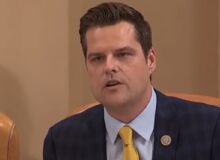By Quin Hillyer
Consistency is not exactly the greatest virtue of some of our U.S. Supreme Court justices.
Setting aside deeper analysis of whose constitutional interpretations are most cogent or correct, let’s just look at how the two “swing-vote justices,” John Roberts and Anthony Kennedy, seem to contradict their own reasoning from case to case.
Congress coercing the states?
Let’s take what Roberts wrote in the first big Obamacare case, National Federation of Independent Business (NFIB) v. Sebelius in 2012, and compare it to what Roberts wrote in the June 25 Obamacare decision of King v. Burwell. In NFIB, he wrote that Congress “may use its spending power to create incentives for states to act in accordance with federal policies,” as long as “pressure [does not] turn into compulsion.” He wrote that in the case of state expansion of Medicaid, the Obamacare bill went too far toward compulsion, and thus he and other justices effectively re-wrote that part of the law in order to make it remain constitutional.
Yet in Burwell, Roberts wrote that even though Congress specifically made certain subsidies apply only in exchanges “established by the state” — what one of the bill’s primary architect, Jonathan Gruber, bragged was an intentional way to pressure the states into compliance — there is no way Congress possibly could have intended those plain words to mean that lawmakers were trying to pressure the states into setting up exchanges.
So in one case he blasted Congress for trying to coerce the states into doing what Congress did not want to do alone, and in the second case he decided the exact same Congress in the exact same bill would never have meant to coerce the states into doing what Congress did not want to do alone.
Who needs plain meaning?
Likewise, Roberts has not been consistent when requiring that congressional acts be read in such a way as to accept the most natural understanding of the words being interpreted. (Space does not permit a full airing, so some of the subtleties of Roberts’ standards will be lost in this discussion — but the overall inconsistency remains clear.)
Several examples are available, but one will suffice. In a 2006 environmental law case called Rapanos v. United States, Roberts joined the plurality in insisting that “the plain language of the statute,” rather than a federal agency’s broader interpretation, be respected. The decision also protected “the primary rights and responsibilities of the states” against federal control — and it expressly rejected the idea that the Supreme Court should be guided by “the wisdom” that a broader interpretation would better fulfill the ultimate intentions of Congress than what Congress actually wrote.
Wrote the justices: “As for advancing ‘the purpose of the Act,’: We have often criticized that last resort of extravagant interpretation, noting that no law pursues its purpose at all costs, and that the textual limitations upon a law’s scope are no less a part of its ‘purpose’ than its substantive authorizations.”
Yet in Burwell, Roberts did the opposite, on all three counts. First, he even admitted that “the plain meaning” of the phrase in dispute, along with “the most natural reading of the pertinent statutory phrase,” both argued one way — but Roberts went the other way, contradicting his position in Rapanos that “the plain language of the statute” be honored. Second, whereas in Rapanos he had joined those singing the praises of “the primary … responsibilities of the states,” in Burwell he ignored that responsibility and grabbed it back for the federal government. Third, while in Rapanos he declined to substitute the court’s “wisdom” for Congress’ own words through “extravagant interpretation,” in Burwell he repeatedly wrote phrases like “it stands to reason” that Congress couldn’t really mean what it actually seemed to have written.
In short, Roberts manipulated the law until he achieved the result he wanted, despite prior warnings against just such a practice.
Trusting the public process — or not
If Chief Justice Roberts has been slippery in applying judicial standards, Justice Kennedy has been stunningly self-contradictory.
Just two years ago, in the same-sex-marriage case called U.S. v. Windsor, Kennedy was the lead author of the decision in which he eloquently sang the virtues of the “statewide deliberative process that enabled its citizens to discuss and weight arguments for and against same-sex marriage.” Likewise, in the 2014 case of Schuette v. Coalition to Defend Affirmative Action, Integration and Immigration Rights by Any Means Necessary (also known as BAMN), he wrote of another controversial issue that “deliberative debate on sensitive issues such as racial preferences all too often may shade into rancor. But that does not justify removing certain court-determined issues from the voters’ reach. Democracy does not presume that some subjects are either too divisive or too profound for public debate.”
Yet in the June 26 landmark same-sex-marriage case known as Obergefell v. Hodges, Kennedy not only short-circuited “public debate” and the “deliberative,” democratic process to which he had so many times paid homage, but he specifically overturned the results of those processes in a dozen states. Schuette, like Obergefell, involved an assertion that an allegedly “fundamental right” should be newly recognized. Yet Kennedy, who had written that the courts should not short-circuit debate on one alleged right that had never before been recognized, now explicitly writes in Obergefell that “individuals need not await legislative action before asserting a fundamental right.”
So apparently his own principles only apply to the extent to which his own preferences are served.
The states’ authority to recognize marriages
But if Kennedy has now changed the tune on his own hymns to the respect owed to public debate, he has done worse to – he has knocked over, kicked, and stomped into the ground — his earlier stated constitutional position on which government entities control laws on marriage.
In Windsor, Kennedy devoted a full seven of the 13 substantive pages of his decision (there were also 13 pages devoted to a procedural issue of the court’s “jurisdiction”) to explaining that the very reason to overturn the federal law at issue was because “by history and tradition the definition and regulation of marriage, as will be discussed in more detail, has been treated as being within the authority and realm of the separate states.” And by “more detail,” Kennedy meant exhaustive, almost mind-numbing detail, citing numerous precedents. For example:
“The recognition of civil marriages is central to state domestic relations law applicable to its residents and citizens. … The whole subject of the domestic relations of husband and wife, parent and child, belongs to the laws of the States and not to the laws of the [central government of] the United States.”
That was just two years ago. Yet now Kennedy ignores his own seven full pages of examples and arguments and orders “the separate states” to adopt a uniform standard, at odds with what he himself described as a “definition [of marriage which] has been with us for millennia,” by which same-sex couples must now be offered marriage.
So, after invalidating one law because it interfered with the states’ prerogatives on marriage, he now effectively creates one national law overturning dozens of states’ prerogatives on marriage.
That’s not just a slight inconsistency; it is full-fledged hypocrisy.
It is lawless, and it is despicable.






